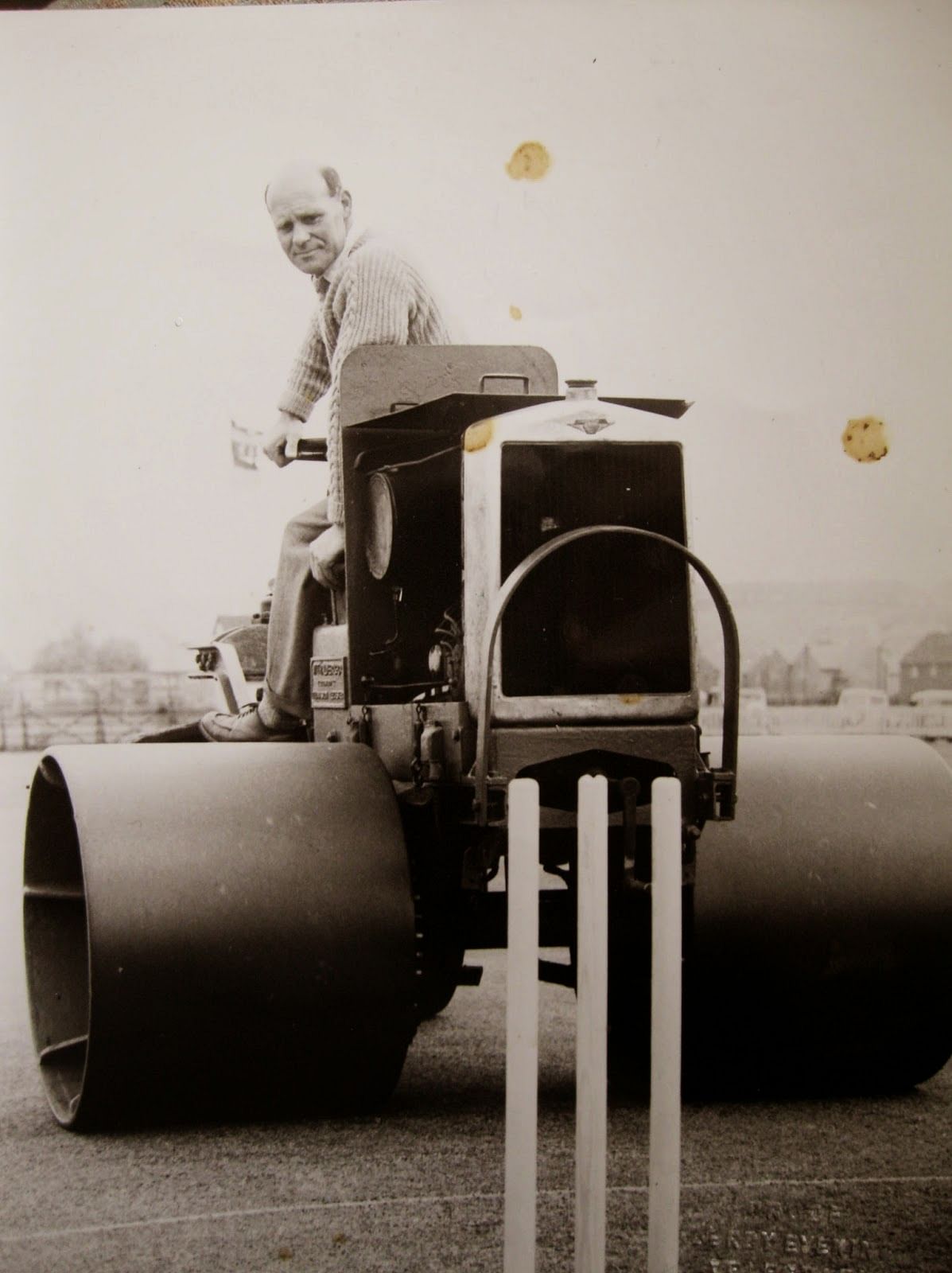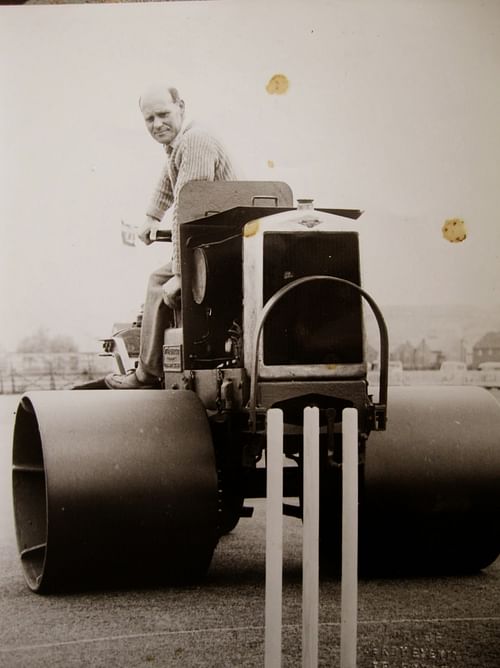
An interview with Walter Goodyear part 3

My wickets were always green tops for the Derbyshire seamers. RWV (Walter) Robins came with Middlesex in 1947 and took me out to have a look at the wicket, which was green, as always. He told me it looked damp and had too much grass. I told him it didn't.
He wasn't at all happy and said that if he won the toss he was going to get it cut. I told him 'You bloody well won't, it's my wicket.' So he went off to see our club secretary, Will Taylor, who gave me his backing and then he came back out, saying 'OK you win, Walter...so what' s going to happen?'
I told him they would lose two wickets for twenty but probably make three hundred. I also told him to leave out his spinner, the long-serving Jim Smith, in favour of a young seamer, Norman Hever. He subsequently went to Glamorgan where he played in their championship winning side of 1948 and never forgot that I got him picked for that game!
Norman later became groundsman at Northamptonshire and we got to know each other very well.
Robins being the strong character that he was, he kept Sims in the side too and he took seven wickets in the match!
Did any Derbyshire captains ask you to go out to the wicket with them?
Some did, earlier on in particular, but a few captains later on thought that they knew it all and didn't need any help from me.
Who were the best Derbyshire captains of your experience?
Captain GR Jackson in the 1930s was the best by a mile. He was a gentleman and a really good captain, something he'd done in the army, of course. He called a spade a spade and you knew where you stood with him.
Arthur Richardson was very good too, while post-war Donald Carr and Guy Willatt were both excellent men to work with.
You had other involvement in the club too, I understand?
Oh, I got involved in no end of stuff. Players used to lodge with me and the wife.
Harold Rhodes, Reg Carter, John Kelly, Arnold Hamer – they all stayed with us in our back bedroom at times.
I got a reputation around the club as a 'Mr Fixit'. In 1952, when they were visiting Derby, I got Fred Perry and Dan Maskell to do a tennis exhibition at the ground. They were doing some work for the Council and I crossed a palm or two to get them over to the County Ground. I never did get paid for that, nor for a lot of other things over the years...
There were some real characters in the side of the 1930s. I'd like to throw some names at you.
Arthur Richardson
He was an absolute gentleman. You know, when the Australians came to Derby with Bradman in 1948, we had the biggest crowd in the club's history. There were 17,000 there on the first day and close to five figures on the others. And the club forgot to pay me!
I went to Arthur Richardson, who was on the club committee at the time and he wrote me a cheque for £20 and told me to take it to my bank. I didn't have a bank account! So he gave me the £20 cash himself, but it was indicative of the way the club was run around that time.
Will Taylor
He did a lifetime of work with the club but he guarded the finances as if they were his own, which I suppose they were to some extent. We had to submit our expenses to him each month and the first time I was asked for these I spoke to my wife, to see what I should ask for.
She said that I'd had to pay for different things, including the papers being delivered to the ground, so we worked out a figure of £5. Then the next time, I doubled it to ten. I quickly worked out that he didn't like to be seen as 'tight' when other people were with him, so I made a point of going for my expenses when someone else was there.
I eventually got him up to nearly £20...you did what you had to do, because the money I was paid was barely enough to get by on.
There's a story I have heard – maybe apocryphal - regarding you and Mr Taylor...
(Laughs) That one! Oh, it was true. Mr Will Taylor did a lot of good for Derbyshire cricket as secretary for over fifty years, but he and I didn't see eye to eye very often. He had an office that was at the top of the old stand at Derby and one day – it was a match day - he came out of it and shouted across to where I was working on the ground.
“Goodyear!” He bellowed it and everyone must have heard. I ignored him. Then he shouted again.
Now, keep in mind that I had fought in the war and didn't much like people talking down to me any more, especially when there was a ground full of people. I just turned round to the pavilion and shouted back at him.
“B****cks”.
He never did it again...
Denis Smith
Denis and I got on brilliantly. We got on well when he was a player, but when he became coach we had a lot of fun.
He always had his pipe on the go – you rarely saw him without it – and we never had a cross word. I also knew where he was, from the plume of smoke from that pipe!
I remember one time he broke my finger by accident and I'd to go to the hospital to get it splinted. The next day I dropped something when I was trying to protect my injured finger and it landed on his foot and broke his toe! We had some laughs about that, I can tell you.
He was a grand bloke. Not many people know that he coached Derek Randall, the Nottinghamshire batsman. His Mum used to bring him down to the County Ground for evening sessions with Denis.
He liked four nets for practice. Two had more grass for the seamers, while two were shaved for the spin bowlers. He liked players to work hard in the nets, there was no room for slacking and he soon told anyone who did.
I missed Denis when he retired.